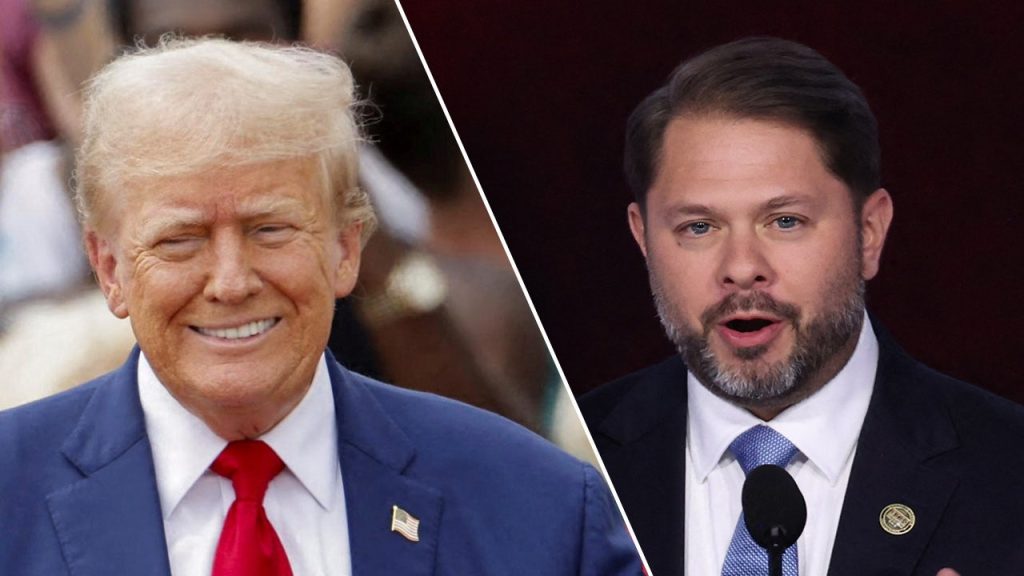In the Arizona Senate race, one group of split-ticket voters could potentially fuel victories for both Democrats and former President Trump. In a recent poll, Trump narrowly defeated Vice President Kamala Harris among registered voters in Arizona, while Rep. Ruben Gallego, a Democrat, came out ahead of Republican Senate candidate Kari Lake. The respondents who indicated they were splitting their ticket by supporting Gallego and Trump were primarily Latino, less college-educated, and lower-income individuals. Despite their political differences, both candidates have managed to attract this key group of voters.
Gender may also be playing a role in these races, as both Trump and Gallego are facing off against women. Political science professor Melissa Michelson explained that women candidates often face additional challenges in elections. Trump has shown strength among voters without college degrees and has appealed to non-White voters, including Latinos. This appeal is evident in the latest poll, where voters without college degrees are more likely to prefer Gallego, who is also Latino. Michelson noted that Latinos tend to vote Democrat and often support Latino candidates, making Gallego an appealing choice for this demographic.
The potential for a split result in Arizona, with Trump winning the presidency and Gallego securing the Senate seat, would be significant given the decline in split-ticket voting in recent years. Republican strategist Kevin Madden emphasized that the outcome is ultimately dependent on the candidates themselves. Gallego has made efforts to reach a male, Latino audience, such as hosting a watch party for a Mexican boxing match with Latino attendees. Recent endorsements from the Arizona Police Association for both Gallego and Trump could also encourage split-ticket voting, despite the union’s support for different candidates in other races.
The special election in Arizona reflects a unique political landscape where a split-ticket result could benefit both parties involved. The appeal of Trump among certain demographics and the strategic campaigning of Gallego demonstrate the importance of candidate-specific factors in elections. The endorsements from the Arizona Police Association and the Arizona Fraternal Order of Police further highlight the potential for split-ticket voting in the state. As the election approaches, it will be interesting to see how these dynamics play out in determining the final outcome in both the presidential and Senate races.
Overall, the Arizona Senate race has become a battleground for split-ticket voters who are supporting both Democrats and former President Trump. The unique demographics of these voters, along with the candidates’ strategies and endorsements, have created a complex political landscape in the state. The influence of gender, race, and party affiliation is evident in the choices of these split-ticket voters, highlighting the importance of candidate-specific factors in elections. As the campaigns continue to unfold, it will be crucial to monitor how these dynamics shape the final outcome in Arizona and potentially impact the broader political landscape in the state.
The ongoing battle between Trump and Gallego, as well as the shifting preferences of split-ticket voters in Arizona, underscore the complexity of modern political campaigns. While candidates may differ ideologically, they are able to attract a diverse range of supporters based on factors such as race, gender, and policy positions. The endorsements from different police unions further complicate the political landscape in Arizona, indicating the potential for unexpected outcomes in the upcoming election. As the race intensifies, it will be crucial for candidates to continue tailoring their campaigns to appeal to a wide range of voters and navigate the challenges posed by split-ticket voting.


